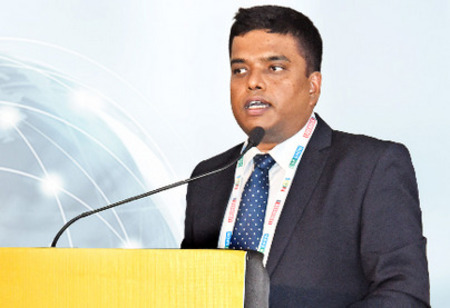
How Leaders Can Make ESG and CSR More Effective with Technology


Abhishek R, Sr Director and Global Head - ESG, Brillio, 0
In the aftermath of the need for sustainable business cultures, CSR is no longer an afterthought or a side project. Business leaders are realizing that tackling social challenges is not only morally right but also necessary for long-term corporate success. Implementing these thoughts into actions is Abhishek Ranjan, who leads Brillio’s responsible business agenda as the Global Head of ESG and Managing Trustee of the Brillio Foundation. In an interaction with CEO Insights, Abhishek shared what strategies have been most effective in spearheading initiatives in carbon neutrality, diversity and inclusion, and community impact. Below are a few key excerpts from the exclusive interview.
How has your role evolved beyond ensuring ESG compliance?
I spent the first decade of my career in marketing and communications roles at IBM, Oracle, and my current company. At that time, CSR was largely voluntary and limited in scope. In 2014, I transitioned from marketing to lead the CSR and sustainability function at Brillio. This shift marked a significant turning point in my career and reflected broader changes in the industry, as CSR gained prominence. Over the past decade, my focus has expanded from CSR to a broader sustainability and ESG agenda. Today, this includes areas such as human rights, diversity and inclusion, governance practices, and environmental initiatives like carbon data and Net Zero commitments. This evolution mirrors the industry's shift from voluntary CSR to a comprehensive ESG approach.
Also Read: Inspirational Quotes from 5 Indian Business Legends
How should leaders address the ethical implications of their company's technology development and use, particularly within ESG-related applications?
The adoption of ESG is rapidly growing, as it stands out as the first framework mandating industry leaders to provide clear, data-supported proof of their company’s activities. ESG leadership now includes a broader spectrum of elements, such as
the structure of the board, frameworks implemented, human rights, investment in employee training, pay equity, and the security of data. Leaders could leverage AI to make the process of compliance reporting quicker and more precise, fostering greater trust and minimizing duplication. As more leaders input data, AI will play a crucial role in verifying that compliance claims are authentic, thereby further enhancing trust in corporate behaviors.
How do leaders foster a culture where sustainability is ingrained in the mindset and decision-making of every employee?
First, you must be genuine in your actions and teachings; people pay closer attention to your behavior outside the podium than to your speeches. Next, an essential aspect is the say-do ratio, which reflects what we communicate and how much we actually implement. Furthermore, the company's value system is important. Leaders must ensure those values are practiced in real life, rather than merely displayed on posters, allowing their teams to adopt those principles.
Also Read: Home-Grown Coffee Brand Leaders Leading the Coffee Culture in India
Additionally, I always emphasize the importance of aligning actions with words. Also, you serve as a guardian of the company’s human rights, which is particularly crucial in the technology sector. If you are a source of inspiration or someone who emphasizes important matters, others will be inclined to pay attention to you.
Tell us about your leadership approach. What are the guidelines or methodologies you follow as a leader?
A key aspect of my leadership style is to always acknowledge the ratio of what we say to what we actually accomplish. Additionally, I rely heavily on a follow-through and follow-up system because there are countless tasks happening simultaneously, and without a proper mechanism to monitor and follow up, things tend to slip through the cracks.
Furthermore, it’s important to recognize that it’s the team that drives success. Consistently appreciating and acknowledging your team members is essential.
Lastly, from my experience with past supervisors, it’s crucial to adopt a solution-focused approach for major issues. My recommendation to my team is to avoid bringing just problems to the table; instead, come prepared with potential solutions so we can collaboratively brainstorm and determine the best way forward.
From my experience with past supervisors, it’s crucial to adopt a solution-focused approach for major issues.
How do leaders foster a culture where sustainability is ingrained in the mindset and decision-making of every employee?
First, you must be genuine in your actions and teachings; people pay closer attention to your behavior outside the podium than to your speeches. Next, an essential aspect is the say-do ratio, which reflects what we communicate and how much we actually implement. Furthermore, the company's value system is important. Leaders must ensure those values are practiced in real life, rather than merely displayed on posters, allowing their teams to adopt those principles.
Also Read: Home-Grown Coffee Brand Leaders Leading the Coffee Culture in India
Additionally, I always emphasize the importance of aligning actions with words. Also, you serve as a guardian of the company’s human rights, which is particularly crucial in the technology sector. If you are a source of inspiration or someone who emphasizes important matters, others will be inclined to pay attention to you.
Tell us about your leadership approach. What are the guidelines or methodologies you follow as a leader?
A key aspect of my leadership style is to always acknowledge the ratio of what we say to what we actually accomplish. Additionally, I rely heavily on a follow-through and follow-up system because there are countless tasks happening simultaneously, and without a proper mechanism to monitor and follow up, things tend to slip through the cracks.
Furthermore, it’s important to recognize that it’s the team that drives success. Consistently appreciating and acknowledging your team members is essential.
Lastly, from my experience with past supervisors, it’s crucial to adopt a solution-focused approach for major issues. My recommendation to my team is to avoid bringing just problems to the table; instead, come prepared with potential solutions so we can collaboratively brainstorm and determine the best way forward.